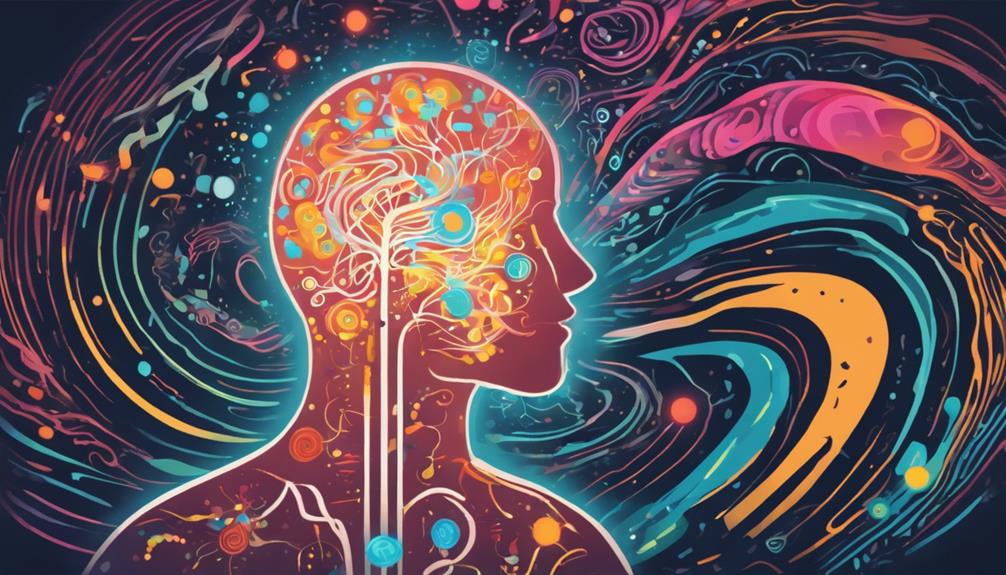Enhancing brain activity during hypnosis can optimize cognitive functions, boost focus, improve memory recall, reduce stress, and enhance emotional regulation. The hypnotic state triggers distinct brainwave patterns, cortical activation, and neural plasticity, influencing attention, perception, memory, and consciousness. Through modulating neural activity, hypnosis can promote memory retention, cognitive enhancement, enhanced concentration, and information processing. Exploring the varied brain regions influenced by hypnosis can provide deeper insights into the mechanisms behind cognitive improvements during this altered state.
Benefits of Enhanced Brain Activity
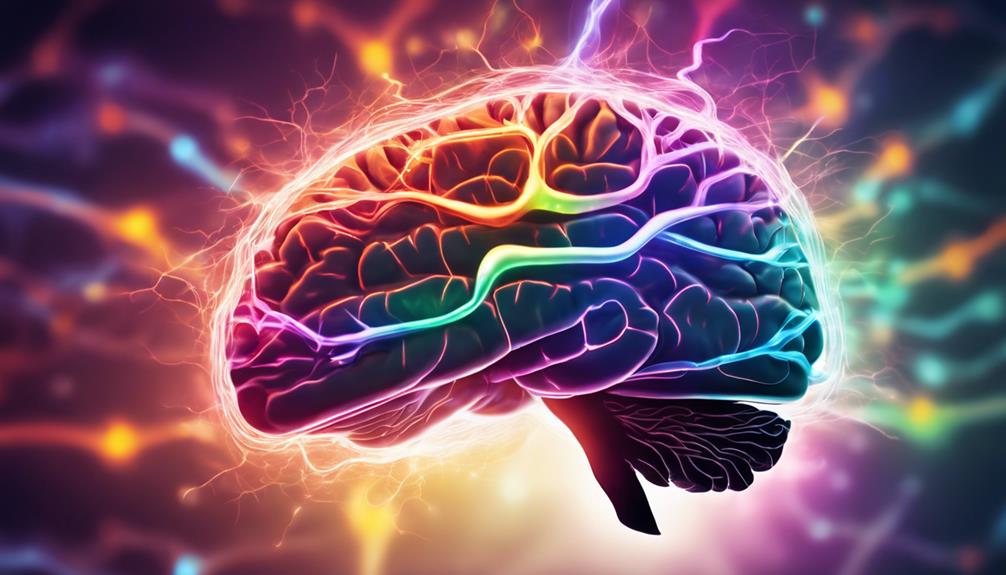
Enhanced brain activity during the hypnotic state has been linked to improved cognitive functions and heightened suggestibility. Research has shown that individuals in a hypnotic state exhibit increased focus and attention, leading to enhanced cognitive performance and improved memory recall. This heightened focus improvement is particularly beneficial for tasks requiring sustained attention and concentration.
Furthermore, hypnosis has been associated with stress reduction and improved emotional regulation. By inducing a state of deep relaxation, hypnosis can help individuals manage stress more effectively, leading to a reduction in anxiety and overall emotional well-being.
This stress reduction aspect of hypnosis can also contribute to better emotional regulation, allowing individuals to navigate challenging situations with greater ease and composure.
Neurological Impact of Hypnosis
The neurological impact of hypnosis encompasses alterations in brain activity patterns and connectivity that underlie the observed cognitive and emotional enhancements associated with the hypnotic state. During hypnosis, neural pathways are influenced, leading to changes in brain plasticity and altered consciousness.
Studies have shown that hypnosis can modulate neural networks related to attention, perception, and memory, highlighting its potential to impact cognitive functions.
One key aspect of the neurological impact of hypnosis is its ability to induce altered perception. This alteration in perception is believed to result from changes in how sensory information is processed in the brain during a hypnotic state. By modifying neural pathways involved in sensory processing, hypnosis can lead to shifts in an individual's subjective experience of reality.
Brainwave Patterns in Hypnotic State
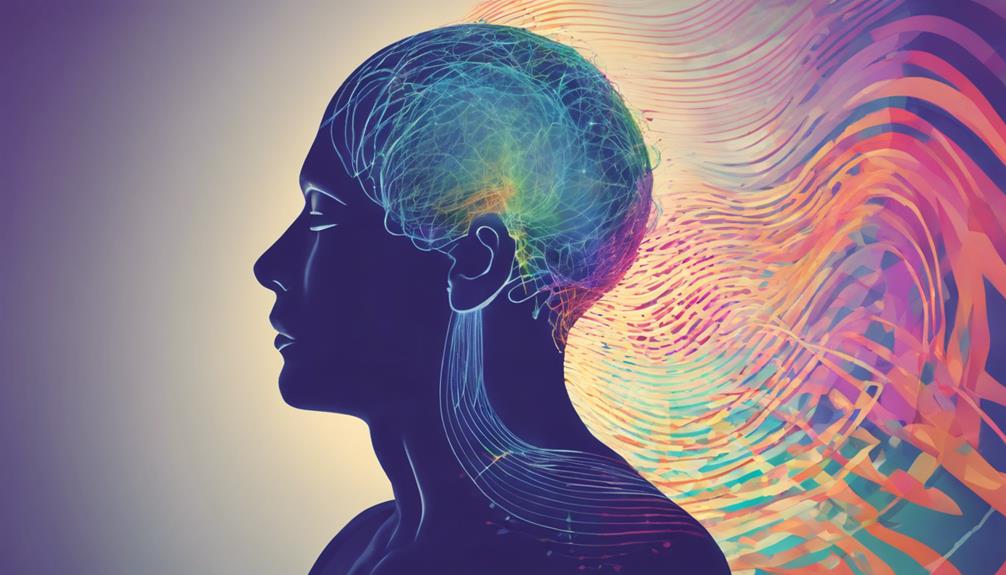
Brainwave patterns exhibit distinct alterations during the hypnotic state, reflecting the unique neural activity associated with hypnosis.
In the hypnotic state, there is a noticeable increase in brainwave synchronization, particularly in the theta wave frequency band. Theta waves, which typically range from 4 to 8 Hz, are linked to states of deep relaxation, creativity, and enhanced introspection. This increase in theta activity during hypnosis suggests a shift towards altered consciousness characterized by heightened suggestibility and focused attention.
Studies using electroencephalography (EEG) have shown that individuals in a hypnotic state display a pattern of brainwave activity distinct from wakefulness or other relaxation states. The prevalence of theta waves during hypnosis is thought to facilitate the receptivity to hypnotic suggestions and the engagement in imagery and visualization techniques commonly utilized during hypnotherapy sessions.
Understanding these brainwave patterns can provide insights into the neurobiological mechanisms underlying the hypnotic state and may contribute to optimizing therapeutic interventions that leverage altered states of consciousness for various psychological and medical purposes.
Cortical Activation During Hypnosis
During hypnosis, there is a discernible increase in cortical activation, indicating heightened neural processing and engagement within specific regions of the brain. This cortical activation is associated with alterations in cortical connectivity, leading to changes in neural communication and information processing.
Studies have shown that during hypnosis, there is an increase in neural plasticity, which refers to the brain's ability to reorganize itself by forming new neural connections in response to learning or experience. This enhanced neural plasticity during hypnosis may facilitate the integration of new information, enhance cognitive flexibility, and promote adaptive behaviors.
Research on cortical activation during hypnosis has demonstrated increased activity in regions such as the prefrontal cortex, anterior cingulate cortex, and insula, which are involved in cognitive control, attention regulation, and self-awareness. These findings suggest that hypnosis induces a state of focused attention and heightened suggestibility, leading to changes in neural activity that support alterations in perception, cognition, and behavior.
Understanding the mechanisms underlying cortical activation during hypnosis can provide valuable insights into how hypnosis influences brain function and behavior.
Enhancing Memory and Learning
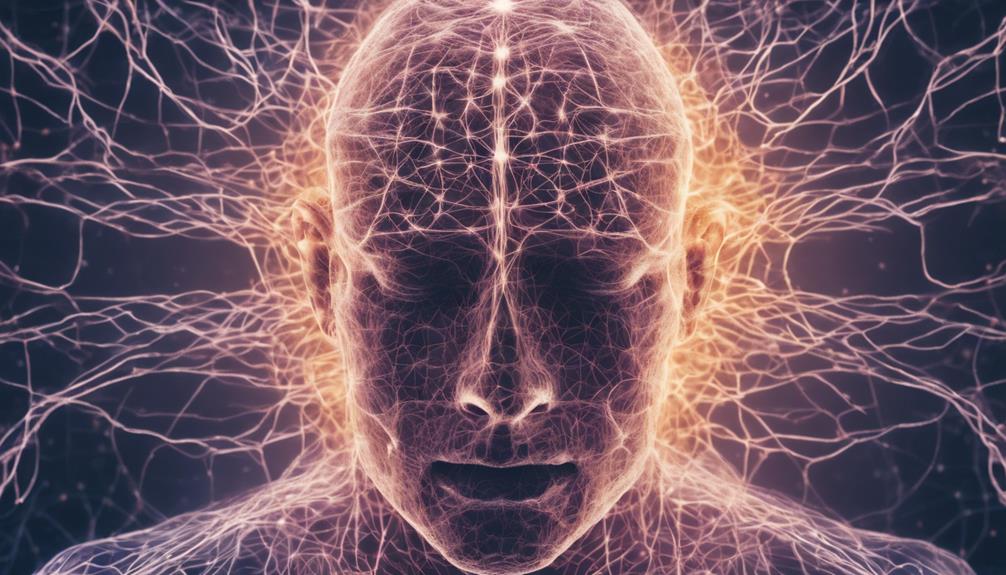
Enhancing memory and learning processes through hypnotic states involves modulating neural activity to optimize cognitive functions. Hypnosis has been shown to enhance memory retention and cognitive enhancement by influencing brain activity patterns.
During hypnosis, individuals may experience heightened focus and concentration, allowing for improved encoding and consolidation of information. This heightened state of awareness can lead to more effective learning and memory recall processes.
Research suggests that hypnotic suggestions can enhance memory consolidation during sleep, leading to improved retention of learned material. Additionally, hypnosis can help individuals overcome mental blocks and barriers that may hinder learning, thus promoting cognitive enhancement.
Brain Regions Influenced by Hypnosis
Hypnosis has been shown to influence specific brain regions associated with cognitive functions and memory processes. Research indicates that during hypnosis, there is increased activation in the frontal lobe, a region crucial for decision-making, problem-solving, and personality expression. This heightened frontal lobe activation suggests an intensified focus and suggestibility during the hypnotic state.
Moreover, hypnosis is linked to enhanced connectivity within the frontal lobe network, potentially facilitating better attention and cognitive control.
Additionally, hypnosis affects the limbic system, a set of brain structures involved in emotions and memory. Through hypnosis, modulation of the limbic system occurs, leading to improved emotional regulation and potentially heightened memory consolidation. This modulation may contribute to the therapeutic benefits of hypnosis in managing stress, anxiety, and trauma-related disorders.
Cognitive Functions in Hypnotized State
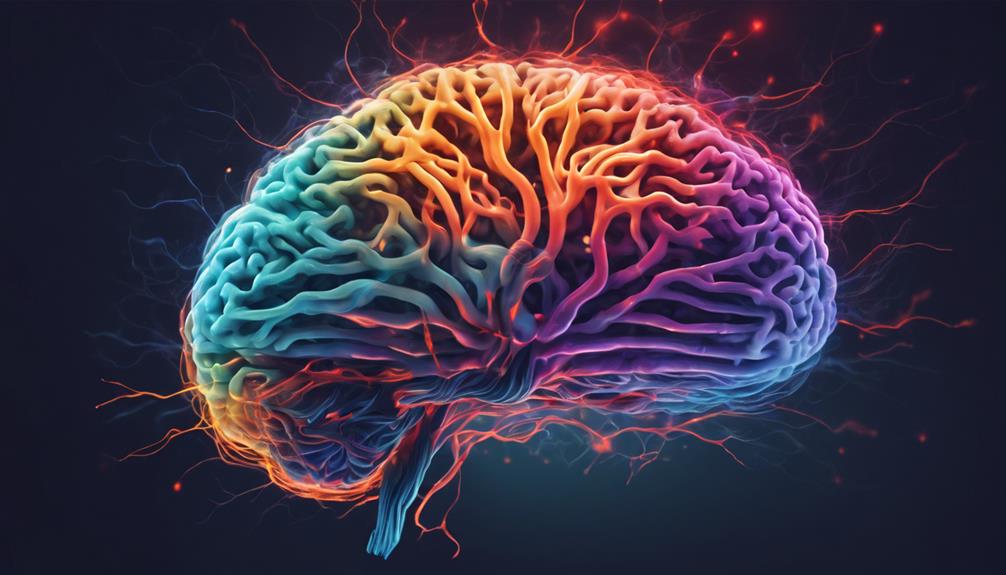
Research findings suggest that cognitive functions exhibit distinct patterns of activity when individuals are in a hypnotized state. During hypnosis, attention enhancement is a common phenomenon, with individuals showing heightened focus and concentration on specific stimuli or tasks. This increased attention can lead to improvements in cognitive performance, such as enhanced memory recall and information processing abilities.
Moreover, hypnosis has been linked to creativity stimulation, with individuals often reporting a surge in innovative thinking and problem-solving skills while in a hypnotic state. This heightened creativity may stem from the relaxation and reduced inhibitions that typically accompany hypnosis, allowing individuals to think more freely and explore unconventional solutions to challenges.
Frequently Asked Questions
Can Hypnosis Be Used to Treat Physical Pain?
Hypnosis is a recognized alternative therapy for pain management. Research suggests its potential efficacy in reducing physical pain through altering perception or response to pain stimuli. Further studies are needed to explore its full scope in pain treatment.
How Long Does It Take to See Results From Hypnosis?
Hypnosis effectiveness in producing results varies among individuals. While some may experience benefits after a few sessions, others might require more time. Typically, noticeable changes can be observed within 3 to 5 sessions.
Is There a Limit to How Often One Can Be Hypnotized?
The frequency of hypnosis sessions should be guided by a trained professional, considering individual needs and responses. Repeated hypnosis can be beneficial for reinforcing desired changes but may lead to diminishing returns if overused without proper assessment.
Can Hypnosis Help With Anxiety and Stress Management?
Hypnosis can aid in anxiety and stress management by promoting relaxation techniques, enhancing self-confidence, and fostering mindfulness practices. Through emotional healing and cognitive restructuring, hypnotherapy offers a holistic approach to alleviate symptoms and improve well-being.
Are There Any Potential Side Effects of Hypnosis?
When considering hypnosis, it is crucial to acknowledge potential cognitive impacts and risks. Understanding the mental wellness implications and associated concerns can help individuals make informed decisions regarding the use of hypnosis for therapeutic purposes.
Conclusion
In conclusion, enhancing brain activity during the hypnotic state can lead to various neurological benefits. This includes influencing brainwave patterns, cortical activation, memory, learning, and cognitive functions.
Understanding the neurological impact of hypnosis on brain regions can provide valuable insights into how hypnosis can be utilized to optimize brain function and cognitive performance.
Further research in this area may uncover new ways to harness the power of hypnosis for cognitive enhancement and therapeutic interventions.

